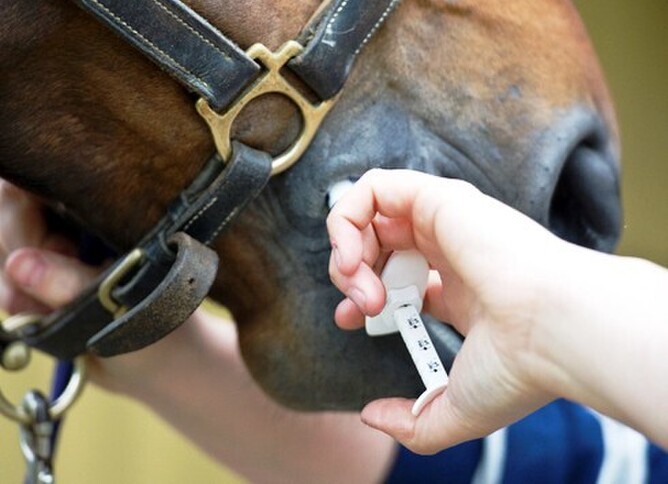Parasite control is an important part of your horse’s annual health management. For all parasite control programmes, we have three main aims:
- Decrease the risk of parasite related diseases
- Control shedding of eggs
- To maintain the efficacy of the worming drugs that we have and prevent further development of resistance.
This third point is one of the main reasons that we recommend drenching horses based on the result of a faecal egg count (FEC) test. It is recommended to drop off a small amount of your horse’s manure to the clinic every 12 weeks to monitor the number of eggs being shed in the faeces. Samples should ideally be less than 12 hours old. Our recommendations for this time of year, however, are a little different.
In autumn and early winter, we are most concerned about a type of worm called Cyathostomins or small red worms. These parasites burrow into the gut wall as part of their natural life cycle and can live dormant there for a period of time. When burrowed into the wall of the gut, they are called encysted cyathostomes. All grazing horses will be infected by these parasites and the highest burdens are found in the autumn period.
If there is a very high burden or if the horse is under stress then these encysted parasites can re-emerge from the gut wall all at once, causing massive damage to the intestinal lining. This widespread damage causes diarrhoea and severe protein loss which can sometimes be fatal.
Due to their location in the gut wall, these parasites are pretty resistant to many of the worming pastes that are available. The only active ingredient that has been shown to have reliable activity against encysted cyathostomes is moxidectin. This is found in Ultramox and in Equest plus Tape. We, therefore, recommend dosing all horses with a moxidectin containing drench during the autumn to reduce their cyathostomin burden during the risk period.
It is very important to administer all worming products according to weight so either weigh your horse or use a weight tape to estimate their body weight. Underdosing horses significantly increases the development of resistance to worming pastes, which is a big concern!
If you have any questions about your horse’s parasite management or wish to discuss parasite management for your herd, please call the clinic and speak to one of our vets.
- Grace Reed

